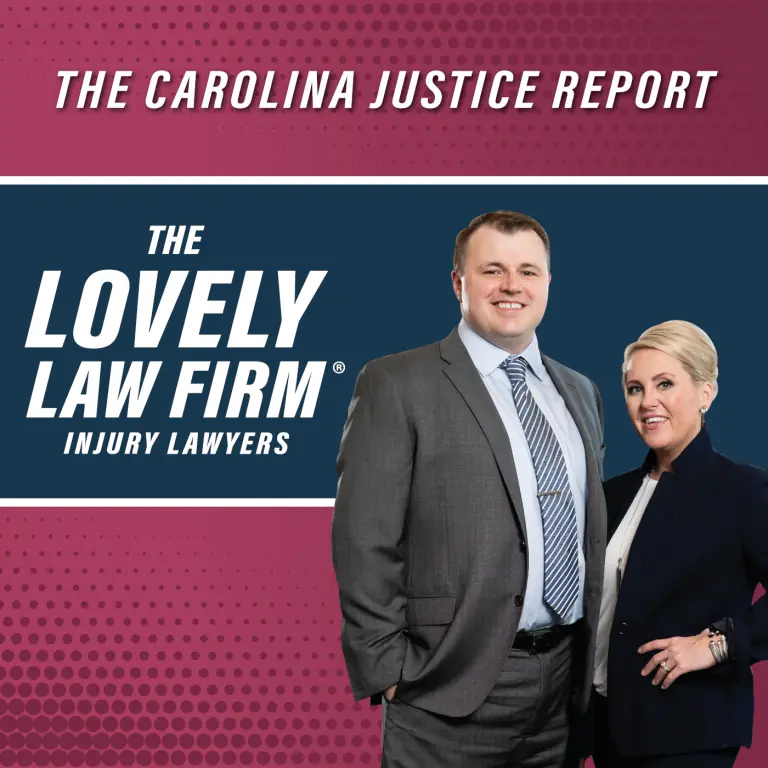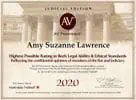High-speed police pursuits are dangerous and can result in the deaths of and injuries to innocent bystanders. According to a report issued by the U.S. Department of Justice, an average of 355 people were killed in high-speed police pursuits each year between 1996 and 2015. Out of those who were killed, almost one-third were innocent bystanders. Because of the dangers involved with high-speed police pursuits, many police departments have policies in place that govern when officers should avoid engaging in pursuits. Unfortunately, however, some officers engage in these types of pursuits regardless of their departmental policies and cause serious accidents and injuries to bystanders who are not involved in the chase.
Skip To:
- Police Engagement
- Police Liability for Reckless Driving
- Substantive Due Process Claims
- Tort Cause of Action
- Tort Claim Gaps
Why do Police Engage in High-Speed Chases?
While officers might drive at high speeds with their sirens on and their lights illuminated to respond to an emergency, they also sometimes engage in high-speed pursuits of individuals fleeing from traffic stops. While you might think that most of these pursuits happen as the result of a violent felony offense, the DOJ’s report demonstrates that the vast majority are conducted following a stop for a petty offense.
According to the DOJ, the reason for the initial stop in 28% of the pursuits was a traffic offense other than driving while intoxicated, reckless driving, or speeding. Minor traffic offenses were the leading reason why officers engaged in chases. Other identified reasons for the stop preceding a police pursuit between 2009 and 2013 included the following:
- Speeding – 16%
- Reckless driving – 13%
- DWI/DUI – 12%
- Nonviolent felony – 12%
- Violent felony – 9%
- Misdemeanor – 8%
Out of all of the pursuits, 69% involved only traffic offenses. Chases of people suspected of committing violent felonies only accounted for 9% of the pursuits.
While most police departments allow high-speed pursuits under their departmental policies, they typically have stringent guidelines in place to ensure the officers conduct them as safely as possible. When an innocent bystander is seriously injured or killed as a result of a high-speed police pursuit, the victim or the surviving family members might have grounds to file section 1983 civil rights claims and state tort claims in South Carolina. However, section 1983 civil rights claims might be more difficult to pursue than a state tort action.
Police Officer Liability for Reckless Driving under Section 1983 and the Fourth Amendment
Section 1983 of the Civil Rights Act of 1871 provides the right to file a cause of action for civil rights violations. However, the Supreme Court of the United States has repeatedly ruled to protect police officers who have been sued under section 1983 for violating the civil rights of citizens. For example, in cases involving allegations of excessive force, the Supreme Court has held that courts must view the degree of force necessary in terms of its objective reasonableness from the officer’s perspective under Graham v. Connor, 490 U.S. 386 (1989). Officers also enjoy qualified immunity, which must be overcome before people can pursue claims against them.
When a high-speed pursuit implicates the Fourth Amendment because of involving a seizure, the Supreme Court has generally ruled in favor of police officers. For example, in Mullinex v. Luna, 136 S.Ct. 305 (2015), the Supreme Court held that a police officer who caused a fatal collision with a suspect during a high-speed chase was entitled to qualified immunity in a claim of excessive force in violation of the Fourth Amendment. Similarly, in Plumhoff v. Rickard, 134 S. Ct. 2012 (2014), the Supreme Court held that a police officer who shot a passenger and the driver during a high-speed police chase had qualified immunity under the Fourth Amendment.
Police Officer Liability for High-Speed Police Pursuits and Substantive Due Process Claims
For claims that don’t involve passengers or drivers injured or killed by police officers in high-speed pursuits, they instead involved substantive due process claims and not Fourth Amendment seizures. However, in the County of Sacramento V. Lewis, 523 U.S. 833 (1998), the Supreme Court held that for substantive due process to have been violated by an officer’s misconduct, the misconduct must have been so outrageous as to shock the conscience. The standard of culpability under this case is incredibly high because the court must find that the officer acted to cause harm.

These cases demonstrate the difficulty of pursuing section 1983 claims against police officers who cause deaths or injuries while involved in high-speed pursuits. To prevail, the plaintiffs must generally meet the high standards established under County of Sacramento. Innocent bystanders are likelier to have grounds to file section 1983 claims than the drivers or passengers of the cars being pursued.
South Carolina Tort Cause of Action
Under S.C. Code § 56-5-760, police officers who are responding to an emergency are allowed to violate other traffic laws when their lights and sirens are activated. However, they are also subject to several restrictions. Police officers must have their lights and sirens turned on and can travel through red lights or stop signs, travel at speeds above the speed limit, park or stop their vehicles, or disregard rules about the direction of travel. However, they also must do the following things to reduce the risk of causing injuries or fatalities to others:
- Slow down before traveling through red lights or stop signs and only proceed if it is safe to do so
- Only travel above the speed limit if doing so will not endanger the lives or property of others
Officers can only do these things if they have their lights and audible sirens activated.
If an officer acts with reckless disregard for the safety of innocent bystanders while engaging in a high-speed pursuit of a suspect and causes a serious accident that injures the bystander or pedestrian, the injured victim can file a lawsuit alleging negligence and gross negligence causes of action under state law.
A state tort claim filed by an innocent third party will not involve Fourth Amendment claims of unlawful seizure since the third party is not the fleeing suspect. Instead, the state tort claim will involve evaluating the actions of the officer, the type of offense the suspect committed, and the department’s policy and procedures for high-speed pursuits.

Tort Claim Caps in South Carolina
Under the South Carolina Tort Claims Act, claims against the government, including against police officers who engage in high-speed pursuits that injure or kill others, are subject to caps under S.C. Code § 15-78-120. Under this law, plaintiffs against the government are limited to recovering a maximum of $300,000 in an action arising from a single incident. Punitive damages are not recoverable. By contrast, a section 1983 claim can result in an award of compensatory damages for the actual damages suffered by the plaintiff and punitive damages against the individual officer who caused them harm. However, punitive damages cannot be awarded against the police department or city.
Talk to an Experienced High Speed Police Pursuit Injury Attorney Near You
If you were seriously injured because of a high-speed pursuit as an innocent bystander, you should speak to the attorneys at the Lovely Law Firm. We can review your case and help you understand whether you might have grounds to file a section 1983 action against the police officer or if you might instead benefit by pursuing a state tort action. If the officer’s actions were particularly outrageous, you might be entitled to pursue both a state tort action and a section 1983 claim. Call us today to learn more about your rights during a free consultation at (843) 281-7452.
What A Happy Client Says About The Lovely Law Firm on Google
“This firm has been most pleasant to work with and get answers! The team has always been fast to respond to my inquiries. The team keeps me informed on the status and the processes. Paralegal Ashley is awesome! I would go on record as HIGHLY recommending the Lovely Law Firm as your legal team! They will fight hard for your interest! Hire this firm. Make the call.”
⭐️⭐️⭐️⭐️⭐️ Mr. G
We’re proud of our team’s hard work, resulting in a 4.9 out of 5 rating on Google







